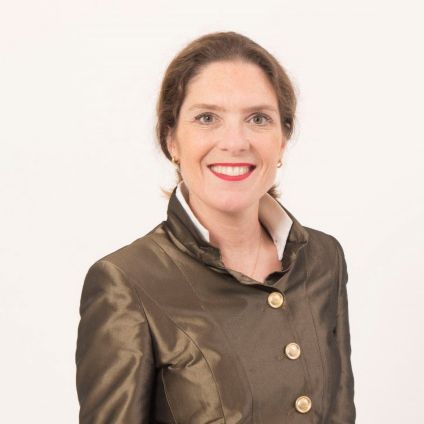With many steps being taken in the right direction, there is still a lot of work to do in the area of diversity and inclusiveness across the Dutch business community. At KPMG’s Pride, Diversity & Inclusion event, representatives of numerous large corporations shared experiences and solutions. ‘We use gamification to allow management to experience in an online game what it’s like to be different.’
A visit to one of the many large companies in the Netherlands provides remarkable insights into diversity in Dutch business, as journalist Joris Luyendijk discovered. At KPMG's Pride, Diversity & Inclusion event on November 22, he talked attendants through his findings on diversity and privilege ̶ the subject of his most recent book, Ticking the 7 Boxes: How Men Like Me Rule the Roost. ‘The employees you see on entering a large company are a cross section of the Dutch population. Across security, catering, and reception, you will see white people, people of colour, people with different hairstyles, tattoos and perhaps an Amsterdam, Surinamese or Moroccan accent.’
The view quickly changes, however, if you take the elevator up to where management and the board of directors work, says Luyendijk. ‘At every next level in the hierarchy, you see more male white employees, speaking ‘the King’s Dutch’. Not a tattoo to be seen and even the hairstyles change at the top of the organisation: shorter and more uniform for men as well as for the few women up there.’
Develop an exclusive culture
Luyendijk’s listeners, all committed to more diversity and inclusiveness within their own organisations, seemed to recognise the picture he painted. Participants from ABN AMRO, VodafoneZiggo, Schiphol, the police and Unilever, among others, shared experiences and insights they have gained in tackling the challenges around this subject. Renée de Boo, partner and director of the KPMG People & Change practice, emphasised the importance of collaborating and sharing knowledge. De Boo and her team help companies develop an inclusive culture: ‘A safe environment in which people can be themselves’. According to her, this culture clearly does not yet exist in every business. ‘Change is happening, but very slowly,’ she said. By organising network events such as the Pride, Diversity & Inclusion event, KPMG wants to contribute to diversity and inclusiveness in the Dutch business community.
Ticking the seven boxes
Van Luyendijk and De Boo discussed solutions for the lack of diversity in Dutch companies. They also looked at causes, such as a lack of diversity at executive level. For decades, ‘the seven checks’, as Luyendijk calls them, have set the tone at the top levels of business, politics and the media, where people who tick the boxes for specific characteristics tend to run the show: male, white, straight, at least one highly educated parent, at least one parent born in the Netherlands, a pre-university education and a university degree. Luyendijk says, ‘This group forms only 3% of the population, but they are the ones making the decisions across the large companies in the Netherlands. And they hire people who look like them.’ As a result, many talented people who do not tick the boxes remain outside the field of vision of these companies and their HR departments and recruiters. And those who do get in are usually quick to leave.
A personal experience
Luyendijk – whose profile ticks all the boxes – shared some personal experiences in this area. ‘I first felt what it might be like for someone who does not tick all the boxes in the Netherlands when I was working at the British newspaper The Guardian.’ Due to his Dutch background, he found it very hard to connect with the British editorial staff. He adapted his way of talking and choice of clothing to his surroundings, but even that was in vain: Luyendijk returned to the Netherlands after two years.
Childishly naïve
If the response from Luyendijk’s audience was anything to go by, such feelings of exclusion are widespread. One attendee recounted how a member of the management team supported a talent acquisition campaign targeting the LBGTQ+ community ‘as long as he didn't have to see it’. De Boo also had examples to share from her experience. ‘The message that women and people of colour are getting is: “It’s fine if you come and work here, but don’t let on that you’re different”.’
Higher level management need to be addressed with greater urgency about this lack of inclusiveness. Luyendijk, who because of his own privileges was able to speak to many of them in writing his book, clearly outlines the challenge ahead. ‘The concept of exclusion does not resonate with these people. People who check all seven boxes can’t relate, because they haven’t experienced discrimination, anti-Semitism, Islamophobia, racism, sexism or transphobia.’ He says that it is an almost childlike naivety that makes these people advise others to ‘do your best and be yourself’. ‘In practice, they are the only ones who can afford to do that.’

